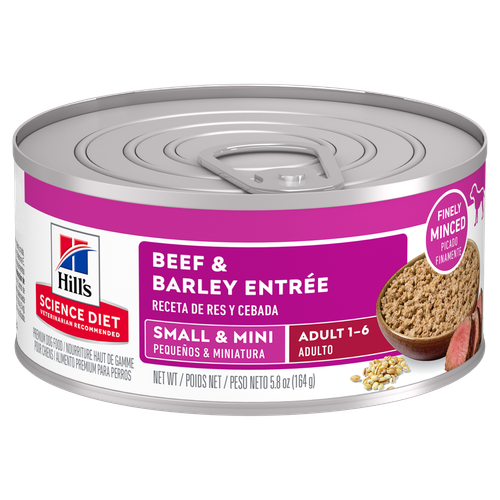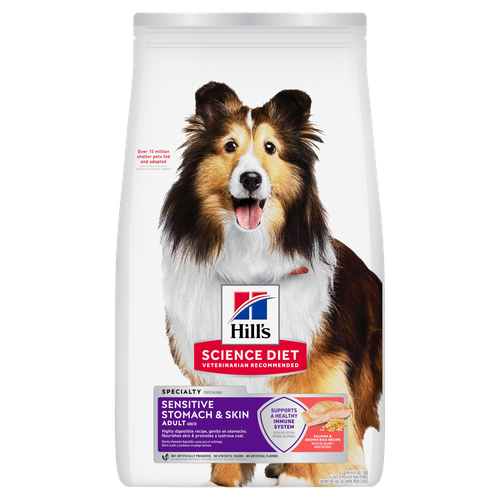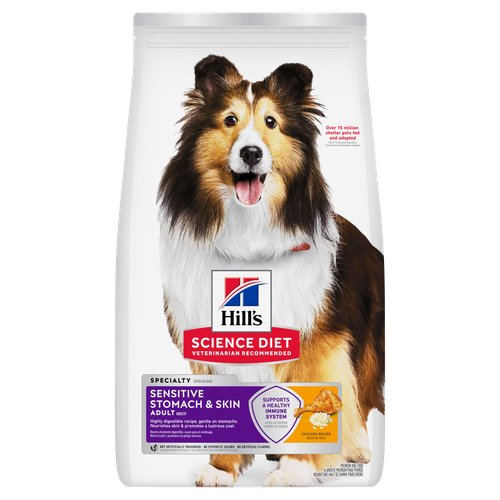

If you've landed here, you've likely learned a thing or two about dog diarrhea firsthand. Beyond the obvious signs, what else can indicate digestive upset, and what causes this all-too-common dog ailment? Is fiber for dogs with diarrhea helpful? When is a vet visit necessary, and how might your vet diagnose and treat your pup? Get all these questions (and more) answered so you can focus on getting your dog the support they need.
What Is Diarrhea in Dogs?
Diarrhea is defined as stools that are softer, looser or more watery than usual. They can be larger or smaller in volume than your dog's regular stool. Diarrhea is a sign of illness or infection, not a diagnosis.
What Are the Signs of Diarrhea in Dogs?
In addition to changes in stool consistency, diarrhea may be associated with various physical and behavioral changes. A few of the more common signs include:
Exhibiting increased urgency to defecate
Pacing or inability to settle
Having accidents in the house
Squatting or straining to defecate with no production
Appearing lethargic
Vomiting
Losing appetite
Running a fever
Presenting signs of dehydration, such as sunken eyes or dry gums
Losing weight (in the case of chronic diarrhea)

What Causes Diarrhea in Dogs?
While cats have a reputation as the most curious household pet, dogs are more likely to sneak their snouts into the garbage for an afternoon sampling platter. Eating something they shouldn't — known as dietary indiscretion — is the most common cause of diarrhea in dogs. This is likely why diarrhea is considered more common in dogs than cats (though cats may be more prone to chronic feline diarrhea).
While this list isn't comprehensive, possible causes of diarrhea in dogs include:
Dietary indiscretion
Switching foods too quickly
Parasites
Bacterial infections
Viral infections
Stress
Foreign bodies
Cancer
Allergies
Liver disease
Endocrine disease
Immune disorders
Toxicities
Pancreatic disease
When Should You Take Your Dog to the Vet?
If you've found yourself wondering whether you should head to the vet for your dog's diarrhea or wait it out at home, you aren't alone. It's always best to err on the side of caution. However, contact your vet right away if your dog:
Has stopped eating and/or drinking.
Is lethargic.
Is producing black, tar-like or bright red diarrhea.
Is vomiting.
Has diarrhea for 48 hours (or if their condition has steadily worsened in this time frame).
Acute cases of diarrhea that don't worsen and aren't accompanied by other clinical signs are often self-limiting, meaning they may resolve at home without the need for specific therapy or veterinary intervention. However, always check in with your vet for advice.
How Will Your Vet Diagnose the Condition?
When you take your dog into the vet, they'll perform a diagnostic workup depending upon the range and severity of your dog's signs and history. In most cases, they'll perform a fecal exam to test for parasites, viral infections and/or bacteria. Your vet may also recommend bloodwork to assess the diarrhea's impact on bodily systems beyond the gastrointestinal (GI) tract. If your dog has a high fever, they may pursue additional testing to rule out specific infectious agents, such as salmonella.
Cases of chronic diarrhea typically involve a more thorough workup and may include food trials, abdominal X-rays or ultrasounds, colonoscopy and/or biopsy.
What Are the Treatment Options for Dog Diarrhea?
There are many treatments available for diarrhea in dogs depending upon the cause. For example, parasites in dogs and canine pancreatitis would have different treatments, as one requires a dewormer and the other requires nutrition management, fluid therapy or other supportive care.
But before you become overwhelmed by potential outcomes, remember that most cases of diarrhea resolve with minimal treatment. In some cases, your vet may recommend withholding food for 12 to 24 hours to allow time for inflamed bowels to calm down and prevent further irritation and water loss from the GI tract. When reintroducing food, they may instruct you to feed your dog a bland, low-fat, easily digestible food.
Fiber for Dogs With Diarrhea
While fiber can help normalize minor to moderately abnormal stools, giving dogs fiber for diarrhea is case-dependent. For constipation, fiber can provide bulk and help move contents along; for diarrhea, fiber can help with water absorption. Because it can affect digestive function in different ways, ask your vet if they think your dog is a good candidate for fiber.
Fluids and Medications
Diarrhea can lead to dehydration. Dehydration in dogs is a serious condition requiring veterinary care, so offer plenty of fresh water during an episode of diarrhea to help replace lost fluids. If needed, your vet may recommend supportive care, addressing hydration and/or electrolyte concerns with IV fluids.
Your vet may suggest over-the-counter medications to halt diarrhea. However, never administer medications to your pet without your vet's guidance. They may also prescribe medication, though most treatment plans will include multiple modalities, with nutrition always being one focus.

How Can You Promote Canine Digestive Health?
Complete and balanced nutrition is the foundation for healthy stools and the best way to support overall health. Your veterinarian may recommend probiotics or prebiotics for dogs to replenish specific bacterial strains (probiotics) or nourish the existing beneficial bacteria in your dog's gut (prebiotics) to foster a healthy gut microbiome and promote digestive health. A healthy gut microbiome is essential for your dog's immune system, stool quality, organ function and energy level.
In addition to providing balanced nutrition, establish and maintain regularly scheduled bathroom breaks and routine exercise. Offer fresh water at all times.
Taking Charge of Your Dog's Wellness
Diarrhea is common in dogs, and most cases require minimal intervention. Seek veterinary care when your dog's diarrhea persists for 48 hours or is associated with other signs of illness. Your vet will develop a treatment plan dependent upon the specific cause and severity of signs. Dogs with frequent or chronic digestive issues may need long-term nutritional management.
Your dog's food can have a significant impact on their GI health. Work with your vet to determine the best nutritional approach for your dog's needs. With the proper care and attention, you can help your pup feel better in no time.



















